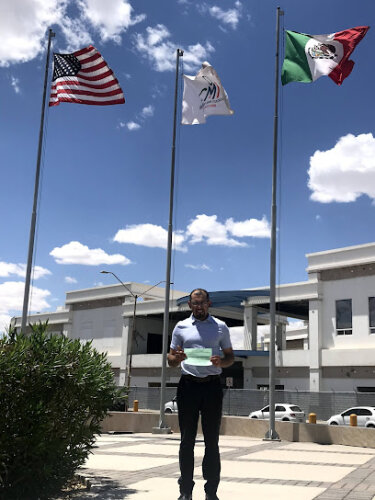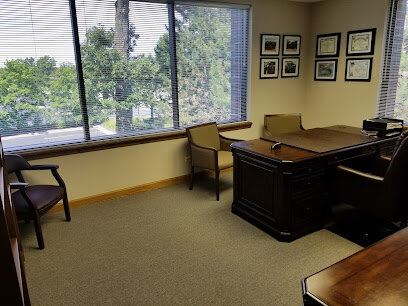Best Speeding & Traffic Ticket Lawyers in Wheaton
Share your needs with us, get contacted by law firms.
Free. Takes 2 min.
List of the best lawyers in Wheaton, United States
About Speeding & Traffic Ticket Law in Wheaton, United States
This guide focuses on speeding and other moving-violation tickets issued in Wheaton, Illinois, a city in DuPage County. Traffic enforcement in Wheaton is handled by local police and by county or state authorities depending on the roadway and the violation. Common citations include speeding, reckless driving, illegal turns, red-light violations, and citations connected to collisions. A traffic ticket can lead to a fine, court appearance, points on your driving record, higher insurance premiums, and in serious cases license suspension or criminal charges. Illinois state law and the Illinois Vehicle Code set the statewide standards for most moving violations, while Wheaton municipal ordinances govern local rules and penalties for some infractions.
Why You May Need a Lawyer
Not every traffic ticket requires an attorney, but legal help can be important in several situations. A lawyer can:
- Advise whether a ticket is likely to result in points, a license suspension, or an insurance surcharge.
- Negotiate reductions or alternative dispositions such as non-moving or parking violations that carry lower consequences.
- Represent you at a contested hearing or trial, challenge the evidence against you, and request discovery of police reports, radar or calibrated equipment records, and officer notes.
- Help if the alleged violation is serious, such as reckless driving, driving under the influence, excessive speeding, or if the ticket is related to a crash causing injury or significant property damage.
- Provide specialized assistance to commercial drivers who face stricter consequences under federal and state rules, or to out-of-state drivers dealing with license points and registration issues.
Local Laws Overview
Key legal points to know for Wheaton and Illinois:
- Illinois Vehicle Code: Most moving violations are governed by the Illinois Vehicle Code, which defines offenses, required elements for proof, and potential penalties. Local ordinances can add specific rules on municipal streets.
- Municipal citations and court: Minor traffic tickets issued by Wheaton officers are often handled through the local municipal court or the DuPage County circuit court system. Some violations require mandatory court appearance; others allow fines to be paid by mail or online if you choose to plead guilty.
- Points and administrative consequences: The Illinois Secretary of State maintains driving records and may assess administrative consequences for accumulated violations. Repeated or serious offenses can trigger license suspension or enhanced penalties under state rules.
- Insurance implications: Convictions on moving violations typically translate into higher insurance premiums. Certain reductions or successful challenges can minimize or avoid insurance impact.
- Traffic school, supervision, and alternative dispositions: Depending on the offense, your driving history, and the court, you may be eligible for supervision, deferred disposition, or traffic safety school to avoid a conviction on your record. Availability and eligibility rules vary by court and by the nature of the offense.
- Evidence and enforcement methods: Police use radar, laser, pacing, timing devices, and officer observations. If the ticket is based on device readings, courts may require proof of recent calibration and proper officer training to admit those readings as evidence.
Frequently Asked Questions
What should I do immediately after receiving a speeding ticket in Wheaton?
Read the citation carefully and note the date by which you must respond. The ticket will usually tell you whether you must appear in court or may pay a fine. Do not ignore the ticket - failure to respond can lead to additional fines, a warrant, or license suspension. If you are unsure how to proceed, consider contacting the court named on the citation or a traffic attorney.
Can I fight a speeding ticket in Wheaton?
Yes. You can plead not guilty and request a hearing or trial. Common defenses include inaccuracies in speed-measuring equipment, improper calibration, mistaken identity of the driver, lawful necessity, or factual disputes about where or how fast you were driving. A lawyer can help evaluate the strength of your case and represent you at court.
Will a speeding ticket affect my insurance?
Most convictions for moving violations will be visible to insurers and can lead to increased premiums. The amount and duration of the increase depend on your insurer, your driving history, and the severity of the offense. Successfully getting a ticket reduced, dismissed, or resolved under supervision or traffic school may lessen or avoid insurance increases.
How can a lawyer help reduce penalties?
A lawyer can negotiate with the prosecutor to reduce charges to a lesser offense, obtain supervision or deferred disposition, or argue for minimum fines. Attorneys can also challenge the evidence so the charge may be dismissed or result in a favorable outcome that carries fewer long-term consequences.
Will points be added to my driving record for a Wheaton ticket?
Many moving violations lead to points or similar administrative marks on your driving record maintained by the Illinois Secretary of State. Accumulating too many points or repeated risky behavior can trigger administrative actions like license suspension. The exact number of points depends on the specific violation. Check with the Secretary of State or consult an attorney to understand how a particular ticket will affect your record.
Do I have to appear in court?
Some violations require mandatory court appearances, while others allow the option to pay a fine or enter a plea by mail or online. The citation should explain the requirement. If you want to contest the ticket, you must appear on the scheduled court date or request a trial date. If you cannot attend, contact the court as soon as possible to request a continuance or to learn your options.
Can I attend traffic school to avoid a conviction?
Some courts offer requirements such as traffic safety school, supervision, or deferred disposition that can prevent a conviction from appearing on your record. Eligibility depends on the charge, your prior record, and the court’s rules. You should ask the court clerk or consult a lawyer about whether these options are available in your case.
What happens if I was driving a rental car or company vehicle?
The registered owner initially receives many tickets, but the law typically requires the owner to identify the driver. If you are the driver, the ticket can be served to you. Commercial drivers face additional regulations and potential employer notification. If a rental or employer disputes identification of the driver, the ticket can lead to separate administrative processes.
How long does a speeding violation stay on my record?
Criminal convictions and traffic convictions stay on your driving and criminal records for different lengths of time, and state administrative records can retain information for several years. Insurance companies may consider incidents for a multi-year period when setting premiums. For precise timelines, check with the Illinois Secretary of State and your insurance provider.
What if I cannot afford the fine?
If you cannot pay a fine, contact the court promptly. Courts often provide payment plans, community service alternatives, or extensions based on financial hardship. Ignoring the fine can lead to additional penalties, license suspension, and warrants, so it is important to address the matter proactively.
Additional Resources
Resources you may contact or consult for help and information:
- Wheaton Police Department - for information about the citation and the officer who issued it.
- City of Wheaton municipal court or the DuPage County circuit court - to learn deadlines, court procedures, and how to enter a plea.
- Illinois Secretary of State - Driver Services - for questions about points, suspensions, license status, and administrative hearings.
- Illinois Vehicle Code - the state statutes that define traffic offenses and penalties.
- Local bar associations - such as the DuPage County Bar Association and the Illinois State Bar Association - for lawyer referral services and to find attorneys who specialize in traffic law.
- Legal aid and low-cost legal clinics - for people with limited incomes who need guidance about court procedures or representation.
Next Steps
If you received a speeding or traffic ticket in Wheaton, follow these recommended steps:
1. Read the citation and note the response deadline and the court indicated on the ticket.
2. Decide whether to contest the ticket or resolve it by plea. If you plan to fight it, file a not-guilty plea or request a court date as instructed.
3. Gather evidence - photos, dash-cam video, witness contact information, and any documentation about road conditions or emergency reasons for your conduct.
4. Consider consulting a traffic attorney, especially if the alleged speed was high, if the ticket could cause a license suspension, if you are a commercial driver, or if the ticket is tied to an accident or injury.
5. Contact the court if you need a payment plan, an extension, or information about traffic school or supervision options.
6. If you face potential license suspension, contact the Illinois Secretary of State promptly to understand administrative hearing rights and deadlines.
7. Keep records of all filings, payments, court appearances, and correspondence. If you hire an attorney, make sure you understand the scope of representation and any costs.
Traffic tickets are common but they can have lasting consequences if not handled properly. Acting promptly, understanding your options, and getting legal help when appropriate will give you the best chance of minimizing the impact on your driving record and finances.
Lawzana helps you find the best lawyers and law firms in Wheaton through a curated and pre-screened list of qualified legal professionals. Our platform offers rankings and detailed profiles of attorneys and law firms, allowing you to compare based on practice areas, including Speeding & Traffic Ticket, experience, and client feedback.
Each profile includes a description of the firm's areas of practice, client reviews, team members and partners, year of establishment, spoken languages, office locations, contact information, social media presence, and any published articles or resources. Most firms on our platform speak English and are experienced in both local and international legal matters.
Get a quote from top-rated law firms in Wheaton, United States — quickly, securely, and without unnecessary hassle.
Disclaimer:
The information provided on this page is for general informational purposes only and does not constitute legal advice. While we strive to ensure the accuracy and relevance of the content, legal information may change over time, and interpretations of the law can vary. You should always consult with a qualified legal professional for advice specific to your situation.
We disclaim all liability for actions taken or not taken based on the content of this page. If you believe any information is incorrect or outdated, please contact us, and we will review and update it where appropriate.









